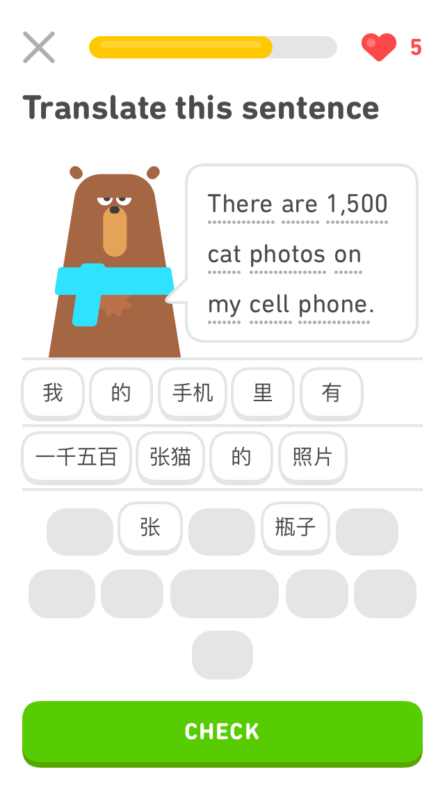
The fall of 5th grade, my parents gave me two options: I could either enroll in Chinese school, or join the youth orchestra. I loved playing cello so I opted for the latter, but as an adult, I wonder if I made the right choice. While I have some basic Chinese conversational skills, I didn’t learn to read or write until college, where I spent three years in a class full of kids like me who grew up speaking the language but had limited reading and writing skills. At one point, I learned up to 2,000 characters, but after years without practice, I’m illiterate again.
I’ve had no shortage of excuses for not practicing my Chinese. First, it was school. Then I got into running and climbing and I told myself I had time for other activities. Finally, over the pandemic, those excuses mostly fell away, and I’ve realized my resistance to learn was rooted in shame, embarrassment, and fear of failure. Am I a “bad” Chinese American for not learning this earlier? What does it say about me that I can’t even write to my grandpa in his native language?
I resolved to get over it, and accept that I’d be starting from almost scratch. I checked out children’s books from the local library: one was about a little boy who found a spider, and the other, about a class who discovered their teacher is also a rapper. I could just barely make out the contours of the story without help from the English translation. My mother was delighted to hear that I’m trying to learn again, and mailed me a book of Hans Christian Andersen fairy tales — the same volume she’d recently sent to my cousin’s toddler.
I’ve also been obsessively completing Duolingo lessons. Today makes the 117th day of my streak and I am already worrying about what will happen to my stats once the weather is warm enough to go backpacking, where I’ll be without wifi. I notice the reading has come easier; while practicing writing characters, certain words or strokes came back to me easily, like a long-lost friend.
Sometimes, the app feeds me a sentence to translate that stirs up some unexpected emotion. In a lesson on travel, there was the sentence, “Be careful, it’s not safe there at night,” and I felt like my mom was in the room with me. And “I will try harder to learn Chinese” made me feel like an irritable teen again. I AM trying, Duolingo! Look at my streak!
But then there are the sentences that make me wonder: Duolingo, are you ok? In what world are these the sentences I’ll need to learn? If I were a creative writing instructor, some of these might make interesting prompts or character details. Here are some of my favorites:
- He is handsome, but he is not a good person.
- How can we be better than other people?
- There are 1,500 cat photos on my cell phone.
- There are too many people here.
- He had three bottles of Baijiu, and now he is sleeping.
- None of us like him, so luckily, he didn’t come.
- I have a smart little bird. It likes to dance.
I’ll leave you with the question that almost sent me into an existential tailspin the other day:
Are you happy?
And here comes MY existential tailspin…
My favorite Duolingo nonsense from learning Japanese is: “Nice to meet you. I am an apple.”
It has not yet taught me how to say, “Please do not eat me.”
cute story!
If you want to be fluent in a language, experts say, you should relocate, briefly, to a place where the language is spoken exclusively. For me, the reverse was true for reading my your mother tongue. I read my first novel in Tamil, my mother tongue, very far from home. I had just moved to the United States to do a graduate degree in chemistry. Most evenings the lab, the place was silent except for the hum of the equipment. That is when I made the effort to interact with the characters in a Tamil book…